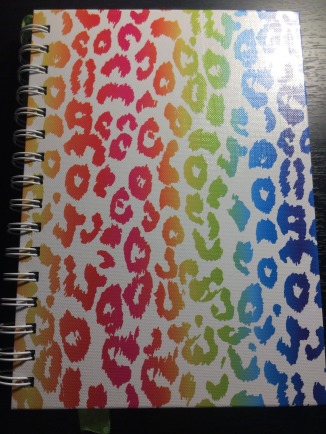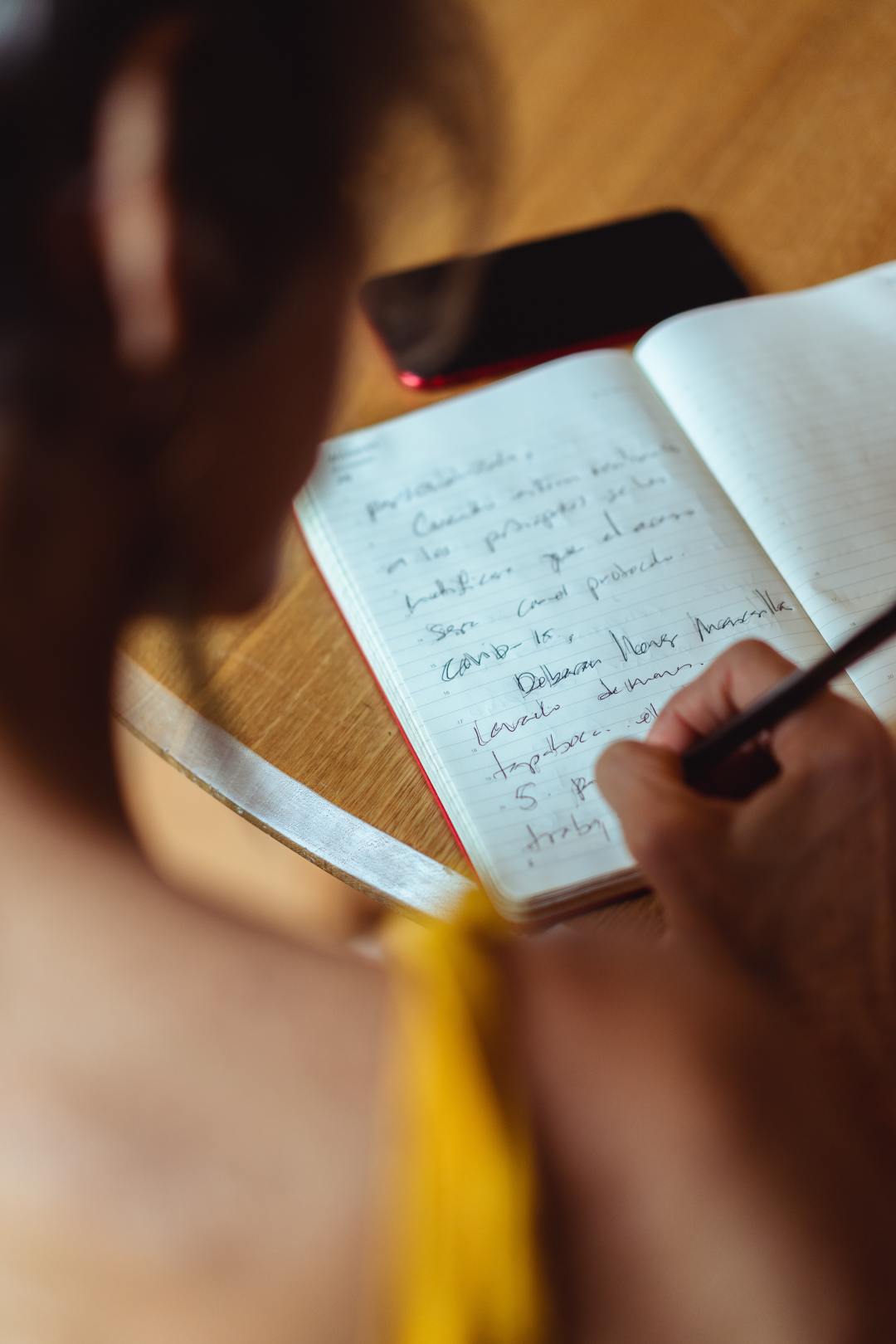
You’ve likely heard or read about the benefits of journaling in your travels. You might brush it off and think, “pfft… that’s for writers”.
Okay, I personally happen to be a writer, but you don’t have to be one to see the benefits of journaling and the powerful impact it can have on your life.
In fact, that’s the beauty of journaling — it’s writing for you, no one else. You don’t have to worry about someone reading your entries, judging you, or pointing out your grammatical mistakes or your embarassing spelling errors.
I originally wrote this article in October 2018, which was a solid month after I began journaling for the first time. I’ve been journaling fairly consistently over the last three years. In this article, I will outline the importance and benefits of journaling, how it can help you overcome your darkest times, and also what happens when you fall out of the habit.
Get the Creative Juices Flowing
By nature, I wouldn’t really call myself a “creative” person. Although I am talented in other areas, I’m the furthest thing from a designer. I can’t draw. I can’t paint. I can barely decide which colors to paint a room in my house.
But I can write.
For a long time, I used to worry that I wasn’t “creative” enough to be a good writer. However, I realized that human beings are only creative for approximately 4 hours per day. I probably only get about 2–3 hours of pure creativity on a good day. But through this exploration period, I learned that my “peak period” of creativity is first thing in the morning, if I’m in the right mindset.
Using myself as an example, I am highly motivated by routines. And if my experience has taught me anything, it’s that if I wake up and start the morning off with the right mindset, I can really maximize periods of creativity. Check out this article on the mental and physical health benefits of journaling.
8 Benefits of Journaling
1. Get in the Right Mindset.
Starting the day can be overwhelming. What needs to get done? Where do you need to be? Where do you start?
Try this. Spend the first 15 to 30 minutes of your day over coffee, breakfast, listening to the news, and write down your thoughts, feelings, or whatever is on your mind. This exercise will allow you to do a few things:
- Understand your current state and emotions (which helps you to understand why you might feel a certain way, and what to do about it. This is a practice that emotionally resilient people do.)
- Find certain “themes” in your thoughts or what you are working on (this will then allow you to categorize and prioritize accordingly).
- Get into the right mindset for the day (which is directly tied to productivity, focus, and success).
2. Increase Focus.
The right mindset and focus really go hand in hand. Perhaps one of the biggest benefits of journaling is obtaining and increasing focus. You could write a stream of consciousness, which could be a few different things or one thing in particular. Regardless of how much or how little you write doesn’t matter. What matters is getting your thoughts and feelings down on paper as this will allow you to increase focus throughout the day.
3. Plan and Prioritize.
Some days are busier than others. A great way to reduce stress and prevent overwhelm is to write down everything you have to do for the day. It doesn’t have to be in any particular order.
Next, review your list and circle your top 3 to 5 priorities.
Then, label each thing you circled with a 1, 2, 3, and so on, in the order of importance or according to level of difficulty or level of effort.
Finally, start tackling your tasks, one at a time.
4. Focus on FACTS Over Feelings.
Human beings with a high level of emotional intelligence tend to also have a high level of personal competence (which is knowing how to manage and control one’s emotions) and social competence (which is a high level of awareness of others and how to effectively manage relationships).
Journaling can help you become more in tune with your feelings. Now ask yourself: Are any of these true? Journaling can help you take a step back, slow down, and focus on facts over feelings.
5. Build a Creativity Habit.
If you want to make creativity a consistent habit, sure, you can paint, draw, take up woodworking, and so on. Regardless of what, how, or why you want to make creativity a daily habit, journaling can help you build it.
Write down where you are at right now in your creative journey, where you want to be, and what steps you need to take to get there.
Journaling helps clear your mind, focus, and brainstorm new ideas, all of which enhances creativity. By reaching your peak “flow state” of creative work, you might even surprise yourself as to what you create.
6. Get Through the Tough Times
Think about some of the toughest moments in your life. What healthy habits helped you get through them? Maybe it was consoling with friends, family, or a significant other. Maybe it was exercise. Maybe it was taking up a new hobby.
Regardless of what methods you used to help cope, you developed a habit. It is proven that habits help get you through tough times. Therefore, making journaling a habit can be an effective way to get through some of the toughest moments in life.
7. Increase Awareness.
Above all, journaling helps increase awareness. You instantly become more aware of your thoughts, feelings, your physical and mental state, and put things into perspective.
8. Set and Stick to Goals.
Journaling can help you stick to your goals. Similar to the exercise mentioned in #3 above, writing down all of your goals, and being as specific as possible, can be a very effective method.
Then, go through and circle your Wildly Important Goals (WIGs). (Hint: You should only have 3–5. Remember, having too many goals is setting yourself up for failure.
As human beings, we only have a certain amount of mental energy to focus on so many things at one time. So do yourself a favor and select a few goals that are most important to you and in life. Write them down in your journal. Then, write down a few small habits you can do every day or every week to help you achieve your goals.
How does journaling help with this? Writing them down immediately develops accountability for yourself. If this doesn’t work for you, don’t be afraid to share them with an “accountability partner” or someone (if you feel comfortable, of course) who can help keep you honest.
What Happens When You Don’t Journal
In 2021, my life completely changed. Rebuilding a life and adjusting to a new lifestyle involves what most of us dislike — change.
In amidst the chaos of adjusting to change, I fell out of a few healthy habits that I rely on each day, namely eating right, exercising, and, yep, journaling.
To be honest, I hadn’t realized I even fell out of these habits. I became so consumed with how to find a new work-life balance that I began to feel mentally and emotionally frazzled, cluttered, messy, and… lost.
The Happiness Process
I have systems and processes for everything — setting goals, making decisions, even organizing my grocery list. One evening I was lying awake in bed, I referred back to my “The Happiness Process”, which involves:
1. Doing a self check — How are you feeling? Why?
2. Asking myself, When are you happiest? What does this “space” look like?
3. Setting the daily intention to be positive and happy.
So I asked myself, Why am I feeling this way? What was I doing before? What about my daily routine changed? And that’s when I realized it: I wasn’t journaling. I lost sight of the very habits that help me clear my mind and make decisions. I then set small, daily goals to get back into journaling.
No Rules, Just Writing
All in all, you don’t have to be a professional writer to start a journal. In fact, one of the things I love most about journaling is I can forget “the rules of writing”. I don’t worry about punctuation, paragraph length, and structure, or flow. I just… write. Much of journaling is free association. It’s about letting your thoughts run and getting them down on paper.
Of course, journaling is a habit that you have to develop. So give yourself some time to “practice” journaling. It might feel weird at first, especially if you’ve never tried it before. Try to remember that it is your “safe place” or your “private space”, so use it however you see fit. Over time, journaling might become something that is not only helpful but that you look forward to doing.


Inspiring! Thank you!
LikeLike
Glad to hear it—Thanks for reading!
LikeLike